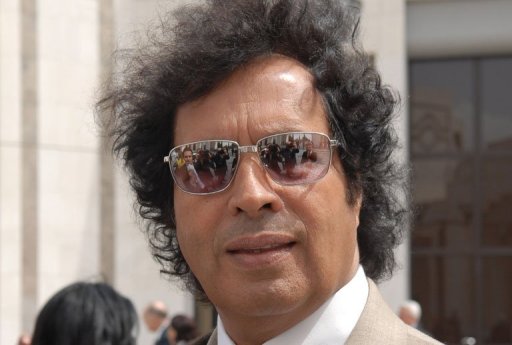Kenya is aflame after a presidential election on Dec. 27 widely believed to have been rigged to secure the re-election of Mwai Kibaki. Kibaki’s opponents took to the streets, the government issued shoot-to-kill orders, and hundreds have died at the hands of the police as well as from gang rampages and inter-ethnic violence. The United States has led the international diplomatic response, but its approach has been deeply flawed.
Kenyans voted in vast numbers, waiting in the hot sun for several hours at crowded polling booths around the country. The first results to be counted were for Kenya’s parliament, with Kibaki’s government ministers roundly defeated in their local constituencies. The main opposition alliance, led by Raila Odinga, won about 100 seats, compared to roughly 30 for Kibaki. It appeared overwhelmingly likely that the presidential vote count would similarly show Odinga beating Kibaki by a wide margin.
That, indeed, is how the early count transpired. As the tallies from polling stations from around the country came into Nairobi, Odinga built up a lead of several hundred thousand votes. Then the trouble began. Vote tallies from Kibaki’s homeland in central Kenya were delayed. Independent observers from the European Union and elsewhere began to report serious irregularities in the Kibaki strongholds, where opposition party representatives were denied access to polling sites.
Matters became even more dubious as the vote tallies were collected and recorded at the Electoral Commission of Kenya (ECK). According to detailed evidence submitted by the opposition, the tallies from the countryside, allegedly already padded for Kibaki, were again manipulated, with additional votes awarded to him. As a result, many more votes were recorded by the ECK for the presidential race than for the parliamentary race, even though voters were clearly instructed – indeed required – to cast a vote in both races.
When the opposition tried to challenge these inconsistencies, the ECK abruptly declared Kibaki the winner. Days later, the ECK’s head publicly acknowledged that Kibaki supporters had pressured him to announce the “results immediately, despite the clear evidence of vote rigging. Shockingly, he declared that he did not know who really won. The EU observers also announced that the election tally had not met basic international standards.
The election is a disaster for Kenya, but the response of the international community, led by the US, is no less distressing. American foreign policy in Africa is in the hands of Assistant Secretary of State Jendayi Frazer, a former student of Secretary of State Condeleezza Rice. From the start of the post-election crisis, Frazer took three flawed positions.
First, she declared that the vote could not be re-assessed by an independent tally. In fact, most observers on the scene believed that there was a long paper trail, from the polling sites all the way to Nairobi, which could be re-assessed in detail.
Second, she claimed that there had been vote rigging “on both sides, and suggested that the true election results were very close and that perhaps Kibaki had won. Given the vast amount of direct and circumstantial evidence that the rigging was on behalf of Kibaki, Frazer’s assignment of equal blame to each side was met with astonishment and dismay by the opposition. She also failed to acknowledge an exit poll carried out by a US foundation, which showed a clear Odinga victory.
Finally, Frazer argued that the two sides needed to compromise and share power. Instead, Kibaki disdainfully appointed 18 key cabinet members even as “mediation from abroad was about to begin. The opposition, of course, was perplexed by the US call for compromise without any serious call to review the vote itself.
In the end, only Kenya will decide its own fate. The US or other outside powers will not save Kenyan democracy. Threats, sanctions, or aid cutoffs would only cause further damage to an economy already in free fall, tragically punishing Kenya’s poor while fomenting further violence.
Still, the international community can play a more constructive role than it has until now by pressing both sides to accept an independent recount. By standing up for democratic principles, the world would truly stand on the side of the Kenyan people.
In dismissing such a recount, Frazer told Kenyans that they shouldn’t expect their vote to be tallied accurately, and that power can be seized or perhaps even negotiated in a backroom. She also sent an unmistakable signal to those who would steal votes: at worst, they might have to share a few cabinet positions with the opposition.
Perhaps a recount would show that the election was too close to call. Perhaps, as the opposition insists, it would demonstrate a clear victory for Odinga. Either way, Kenyans and their votes would be taken seriously, and tempers could well subside. Only if both sides accept that there was no clear winner is it reasonable to call for power-sharing (or a new election).
There is still time to get this right. The international community should stop pushing for a backroom “compromise that ignores the popular will. Let the world stand with neither Kibaki nor the opposition, nor for an arbitrary compromise, but with Kenya’s voters.
If Kibaki rejects an independent recount, his refusal will reverberate around Kenya and the world. Those who ignore voters should quickly learn that they have no place to hide.
Jeffrey Sachs is Professor of Economics and Director of the Earth Institute at Columbia University. This commentary is published by DAILY NEWS EGYPT in collaboration with Project Syndicate (www.project-syndicate.org).


